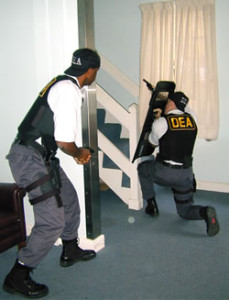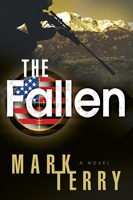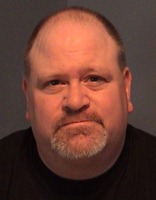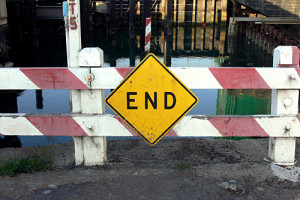A First Page Critique by
John Ramsey Miller
Before I was published, I wrote several novels that I thought were awfully good. Looking back I see how wrong I was. But I kept on, seeing every manuscript as practice, and I read a lot and listened to the criticisms I received, naturally giving more weight to those flaws pointed out by people who knew what they were talking about. And I persevered and kept right on plugging away. Perhaps, due to my advertising background, I have a thick skin and I want only blunt honesty from my readers so I can make my work better. I always say, “Tell me what you really think.” I mean it. It is far better to hear something from another author or agent than it is from an editor who is turning your book down for some reason I wish I’d have known about and could have fixed.
At some point all authors are handed someone’s writing to evaluate, often believing we will (or can) hand it to our agents who will take it on, or that we can send it to our publisher with a demand it be on shelves forthwith. This is a hard business, and years ago I went out of my way to encourage everybody who presented me with their babies. A lot of them (perhaps buoyed by my encouragement) went on and had their teeth kicked in by agents and publishers. A lot of them deserved writing careers, but so far have yet to have a house agree. Even some with talent had their teeth kicked in. Only a small fraction of those who think they can write, can or should. While I hate to give people false hope, I don’t like the idea of shooting at dreams. Sometimes I am too negative (ask my children or friends) and I’m trying not to be a curmudgeon. The truth is that, as with all endeavors, not everybody can perform them as well as they think they can. Some people cannot drive a nail, rebuild a carburetor, or create a painting worth looking at. Some people cannot tell a story, and some may just need encouragement, practice and they will get it and can write professionally. But criticism should always be constructive. While I am not an expert on writing, I have learned some things the hard way.
Before I get into the anonymous page I’ve been given, let me say that there’s nothing that turns off readers––and editors are the most critical readers––than too much information presented too soon (or too little too late), under-drawn settings, under-defined characters, choppy or confusing choreography, telling instead of showing, shocking transitions, clichés, stilted dialog, defying logic, using coincidence to solve problems, typos, unorthodox formatting, or misused words. As a writer you’d better know much more than you put on a page, and you should think about what the reader is seeing or may be missing because of something you knew and didn’t bother to put in. Not that I found all of those “avoidable” problems here, they are just things to look for and to avoid.
Without further foreplay, I present…
Buried Trouble
By An Anonymous Author
From the tip of the peninsula you could see the entire bay and the surrounding metro areas. Hugh had bought the property for a song. Opportunity awaits for those who have ready money in a bad economy. As he looked side to side he could take in the high-rise buildings downtown contrasting with the water. What a perfect development site. Turning and walking back towards his Lexus, he could see the company black SUV speeding his way in the distance. Even though the windows were heavily tinted, he knew it was Bill.
“Mr. Garnet I think you need to see this report,” said Bill.
“We’ll tell me about it, god dammit. That’s what I pay you for.”
Bill revealed the details over lunch. They had to be careful not to talk too loud above the crowd noise. After the waiter had picked up their plates, the conversation continued.
“So, who else knows about this report?” Hugh asked.
“I can’t say for sure. I had to do a lot of digging to find it,” Bill said. “But, as they say, its open source. You know, publicly available. So it’s out there on the internet.”
“Would anyone else do the same digging?” Hugh asked.
“I doubt it. Right now everyone wants the development to go forward. It’s not in their best interest to find out anything like this. It would blow everything.”
“Well, make sure you burn that copy,” said Hugh.
Hugh excused himself from the table as the waiter returned with the check. Bill knew the routine. Hugh never paid for anything he didn’t have to.
*
Growing up in Tampa, Travis had known all of the great fishing spots in the bay since the fourth grade. But today fishing was the farthest thing from his mind. Looking at the project on the Garnet Property Development website, he could take in the whole picture.
“See what I mean, Sam,” he said. “There’s no way out.”
“What do you mean?”
“If a storm came towards the bay like Elaine in 1985, this land floods. And there wouldn’t be enough egress roads to move the population in time,” said Travis.
“We’ll that’s nothing new. Throw a dart at the map of Florida and it’s the same everywhere,” said Sam.
“Yeah, maybe you’re right,” said Travis. “But not quite like this, though. The SLOSH model for a Cat 2 storm shows the entire peninsula under water.”
“Excuse me for asking, but what’s a slosh model?” Sam asked.
Travis motioned Sam to come over to his desk. “Take a look.”
They both looked at the computer screen. Travis clicked the mouse and in slow motion the Interbay Peninsula became a collage of blue, green and yellow.
“It stands for Sea, Lake and Overland Surges from Hurricanes. It’s a computerized model run by the National Hurricane Center to estimate storm surge heights. If it’s colored…it’s under water.”
“So why aren’t the developers paying attention to this?” asked Sam.
“As always,” said Travis. “Money. It doesn’t pay to see it. Besides, the property used to be an air force base with only 3,000 people living there. Then it didn’t matter so much. This development will have 30,000 residents.”
The page opens with “Hugh” surveying his land, which is on a peninsula across the bay from an unnamed major city. He bought this piece of prime real estate for a song because he had cash money in hard times. How this prime parcel was invisible to other developers for decades (and while a city was springing up right over there) is not explained in this opening paragraph. Where are we? I need more. know that Hugh has a Lexus (I’m wondering if he had his accelerator fixed) and that a black “company” SUV with blacked-out windows is approaching with “Bill inside”. “Hugh” is either psychic, or only Bill drives around in hiding. Without opening the window or stepping out of the SUV, Bill opens the dialogue with a message that he has a gloomy-doomy report. Hugh demands to know what is in this report, but before Bill can tell him, they go to a crowded restaurant, and wait until after they have eaten to tell the reader that Bill had to “dig hard” to find out something that explains why Hugh’s primo location is a dog of epic proportions. Bill assures Hugh that nobody else knows about the BIG problem with the land because they have not dug it up––hence the title of the book, BURIED TROUBLE? We get that Hugh is so evil and powerful that he leaves the restaurant before the check comes, and Bill is left to pay …as always. It seems that Hugh is perhaps able to buy land because he never pays for anything but land and the occasional Lexus.
*
In the second segment we meet “Travis” whom I suspect will be the protagonist. This individual had known the greatest fishing spots in the bay since the fourth grade, which perhaps is when “Our greatest fishing spots” was taught in Tampa’s schools. Seriously, this intro needs a lot of work, but it is fixable.
The author does not tell us where Travis and sidekick Sam are, or immediately whether Travis is looking at a computer screen, a chart on a wall, into a shallow hole Bill forgot to cover up after digging out the report, or gazing into a crystal ball. We do find out later that the two men are at desks and that Travis is looking at a computer screen. Still there is far too little information and there is no physical description of the characters or their actions to allow us to form a picture of them in our minds.
Here we learn that Bill’s report detailing his uncovered secret about the land is in fact known by the National Weather Service and probably everybody with a developer’s license except Hugh. The problem is that the secret that threatens Hugh’s deal needs to be more of a secret. It’s buried and hard to find but Travis found it easily. So others could as well.
Keep it believable. If the peninsula is a death trap, and the military kept 3,000 people in until they abandoned it, there would be no secret as to why they left and it wasn’t developed immediately, and why it went for what Hugh felt was a song. If the parcel, located across the bay from Tampa, was never developed there’s a reason. I think the author needs to reexamine the logic right here, because the deeper you go using a flawed premise, the farther the story goes into the unbelievable. As it appears to me, unless Travis and Sam can somehow stop Hugh, 30,000 people who somehow don’t discover what the world can know {and should know) will rush buy homes from Hugh and be trapped with no way out when a hurricane (they can’t be aware of) hits and they perish en masse, unable to get to safety …in Tampa. And the reader wonders, “why the developers aren’t paying attention to this “buried trouble” Bill and Travis have uncovered.
“So why aren’t the developers paying attention to this?” asked Sam.
“As always,” said Travis. “Money. It doesn’t pay to see it. Besides, the property used to be an air force base with only 3,000 people living there. Then it didn’t matter so much. This development will have 30,000 residents.”
One additional note:
“We’ll tell me about it, god dammit. That’s what I pay you for.” I think there should probably be a capital “G” in God. I think either dammit, damnit, or damn it are fine, but with the “god” attached I’m not sure. “We’ll” instead of “Well” crops up twice in the page, which makes me wonder if the author knows the difference. Again, don’t depend on spell-checking. Use your eyes when you are fresh and focused.
I would suggest that the author see this opening page as a story possibility and examine it and mull it over looking for the holes in the story before they write the novel. Think long and hard on your story premise and examine it from every possible angle. Play the “What if” game. Then play the “why or why not” game because you can bet your readers will.
There are problems here. I think story line feels all too predictable, but many successful novels (Louis Lamour is a good example of predictable working for his audience) are just that and are enjoyed for other reasons than being stunned and surprised. Not that this effort couldn’t have twists and turns later in the book. It needs a lot of things I’m not seeing to get me to want to know more than I do at the end of the first page.
Most of us have written a book filled with mistakes, or came to a grinding halt at a solid wall, because we didn’t take the time to think everything through to make sure the logic holds before we wrote ourselves into corners. It can be avoided by taking the right steps.
Would I keep reading this book?
In its present form, I would not.
Is it fixable?
Most things are. I wish the author good luck.
Okay, Guys and Gals, what did I miss?








